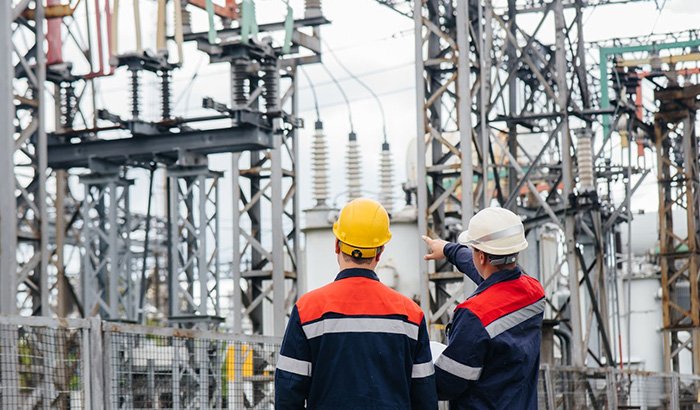In the ever-evolving landscape of electrical infrastructure, substations serve as the backbone for reliable and uninterrupted power distribution. At the heart of every efficient substation lies a well-installed and properly commissioned transformer. Ensuring substation reliability begins with expert transformer installation, as even the slightest installation error can lead to operational inefficiencies, safety hazards, or complete system failures. This is where professional expertise and technical precision come into play, particularly when dealing with complex and large-scale installations across India.
Manikaran Enterprises, a reputed name in the power sector, has consistently emphasized the need for precision in transformer installation. Their experience across diverse industrial and utility projects proves that proper installation practices can significantly enhance the efficiency and reliability of power systems.
Importance of Transformer Installation in Substations
A transformer is not merely a component; it is a critical element that controls voltage levels, supports load balancing, and facilitates the safe and efficient transmission of electrical power. In substations, transformers help step up or step down voltage, depending on the need, ensuring minimal losses and optimal energy distribution. Improper installation, however, can lead to overheating, insulation breakdown, oil leaks, and even catastrophic failure.
The process of transformer installation involves multiple stages including site assessment, transportation, foundation preparation, alignment, oil filling, earthing, testing, and final commissioning. Each step demands careful planning, adherence to technical standards, and execution by qualified professionals. Any lapse during installation can compromise the transformer’s lifespan and the substation’s operational performance.
The Role of Expert Installation in Long-Term Reliability
Expert transformer installation ensures that the equipment functions at its designed efficiency levels throughout its intended lifecycle. Proper alignment, secure anchoring, and accurate testing are vital to prevent early degradation of internal components. Moreover, skilled professionals consider environmental conditions, load characteristics, and cooling requirements during the installation, all of which contribute to substation reliability.
In India’s climate, where extreme temperatures and monsoon conditions can pose challenges, expertise becomes even more critical. For instance, transformers installed in humid or flood-prone regions must be insulated and sealed against moisture ingress. Failure to consider such factors can lead to dielectric breakdown or corrosion, ultimately affecting the reliability of the entire electrical system.
Choosing the Right Partner for Transformer Installation
Collaborating with a technically proficient service provider ensures not just installation but also compliance with national and international standards. One of the leading providers of Transformer Installation and Commissioning Services in India, Manikaran Enterprises offers end-to-end solutions tailored to client needs. Their approach is based on precision, safety, and long-term operational stability.
Their team of qualified engineers follows stringent safety protocols and uses advanced tools to ensure accurate positioning, insulation integrity, and system integration. From compact substations to high-capacity power transformers, their projects reflect a commitment to quality and reliability. This level of expertise ensures minimal downtime and reduces the risk of unplanned maintenance or equipment failure.
Testing and Commissioning: The Final Checkpoint
Proper testing and commissioning are integral to transformer installation. Electrical tests such as insulation resistance, transformer turns ratio (TTR), winding resistance, and oil quality testing are critical to verifying the health of the transformer before it is energized. Skipping or rushing through these steps can jeopardize the entire substation infrastructure.
Commissioning also involves synchronizing the transformer with the rest of the substation’s control systems, protection devices, and SCADA interfaces. It ensures that the transformer responds correctly to load changes and protection commands, enhancing the overall resilience of the power network. This phase must be handled by specialists to avoid compatibility or performance issues that could surface later.
Enhancing Efficiency with the Right Electrical Partner
Selecting an experienced company that understands the complexities of transformer installation can make all the difference in long-term performance. As a Top Electrical Solution Company in Rajasthan, Manikaran Enterprises stands out not only for its technical capabilities but also for its commitment to delivering reliable and sustainable energy solutions. They combine engineering excellence with on-ground experience to implement installations that meet stringent quality standards and evolving power demands.
Substations are long-term assets, and the transformers within them must operate flawlessly for decades. Therefore, cutting corners during installation may lead to heavy repair costs, power outages, or safety issues in the future. Investing in professional transformer installation is not just a best practice—it’s a necessity for industries, utilities, and municipalities seeking to future-proof their electrical infrastructure.
Conclusion
Reliable substations are essential for maintaining stable power distribution, and at the core of every reliable substation is a properly installed transformer. From site preparation to commissioning, every stage of installation must be executed with precision and expertise. Organizations like Manikaran Enterprises are leading the way by offering specialized transformer installation services that ensure safety, efficiency, and long-term performance. With the growing demand for robust electrical networks, ensuring transformer reliability through expert installation is no longer optional—it is vital for the future of power infrastructure in India.




